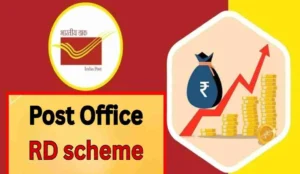Beware of Fake App Downloads: HDFC Warns Against Rising APK Fraud Threat

Beware of Fake App Downloads: HDFC Warns Against Rising APK Fraud Threat
In a concerning trend that’s rapidly gaining momentum, cybercriminals are now using a deceptive method involving fake mobile apps to gain full access to people’s smartphones and bank accounts. HDFC Bank has issued a strong advisory to all customers, cautioning them against downloading any unknown APK (Android Package Kit) files sent through messages, emails, or social media platforms. This new form of digital fraud is not only sophisticated but also alarmingly effective in causing financial losses within minutes.
The scam typically begins with a fraudster pretending to be a trusted authority—such as a bank employee, traffic police official, or representative from a government department. Victims are contacted under the guise of updating their KYC details, paying a fine, or receiving a refund. To make the request seem urgent and authentic, scammers often create a false sense of pressure, sometimes even threatening legal action or account suspension.
Once the victim is convinced, they’re sent a link that leads to the download of a malicious APK file. On installing the app, the malware silently takes control of the phone, giving the fraudster complete access to the device. This includes the ability to intercept text messages, divert calls, and even operate banking apps—essentially allowing the attacker to perform unauthorized financial transactions without the victim’s knowledge.
The real danger lies in how quickly these scams unfold. Typically, after the malware is installed, it only takes a few minutes for the attacker to drain funds from the victim’s bank account. Most people only become aware of the fraud after receiving transaction alerts from their bank—by which time the damage has already been done.
These types of scams are evolving and becoming more dangerous. Criminals are using logos and branding from real institutions to make their fake messages and apps look legitimate. Victims are tricked into entering sensitive information such as OTPs, bank account details, or card numbers, believing they are interacting with genuine apps or portals. The moment this data is entered, it is stolen and misused instantly. Beyond financial loss, victims may also face privacy breaches as these malicious apps can access photos, contacts, and personal data.
To help users stay safe, here are a few crucial tips to avoid falling prey to APK-based fraud:
1. Never click on suspicious links or download apps sent via text messages, social media, or email—even if they appear to be from a known authority like the RTO, bank, or Income Tax Department.
2. Install antivirus or anti-malware software on your device to help detect and block potential threats before they can do harm.
3. Avoid downloading apps based on phone conversations with unknown callers. Only use trusted platforms like Google Play Store or official websites.
4. Verify the authenticity of messages or emails by cross-checking with the official website or customer care of the concerned institution.
5. Report any suspicious activity or communication through the Chakshu portal at https://sancharsaathi.gov.in/ or by using the official Sanchar Saathi mobile app.
HDFC Bank also reminded users to be cautious of other emerging scams. One particularly disturbing method involves “digital arrest” frauds, where criminals impersonate law enforcement officials and threaten victims with fabricated arrest warrants related to tax or financial irregularities. This fear tactic often pushes individuals into making hasty decisions or revealing sensitive data.
Another growing concern is the rise of online investment scams. These schemes offer unrealistic returns on IPOs, stock market investments, or cryptocurrency trading through fake apps and social media promotions. The fraudsters often exploit emotions using a method known as GTH—Greed, Threat, and Help—to manipulate victims.
If you suspect you’ve been scammed or notice unauthorized transactions, act immediately. Contact your bank to block payment channels such as net banking, cards, or UPI to prevent further loss. You should also call the government’s cybercrime helpline at 1930 and report the incident on the National Cyber Crime Reporting Portal at https://www.cybercrime.gov.in.










